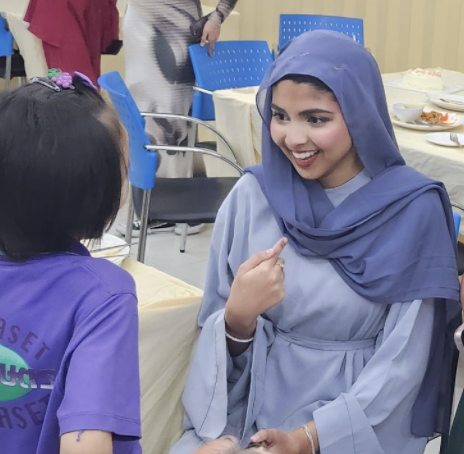The past 11 weeks have prepared us for two goals: cultivating international collaborations and expanding our knowledge globally. When I first joined the module, all I knew was that I would be travelling to a country, but two 15-hour plane journeys later, I understood the importance of cross-cultural learning and putting my knowledge into practice. The first four weeks laid the foundations of understanding the importance of learning beyond a classroom context. We engaged with guest speakers and discussed that we learn better through immersive interactions. However, in a very content and exam-based education system, this module emphasised the need for innovation to integrate different ideas instead of being stuck with standardised schooling methods.
During the workshops, we discussed how society needs to innovate to benefit everyone. It must undergo “deschooling” to avoid dependency on standardised schooling to essentially ‘prepare us’ for the real world. This module emphasised the importance of working co-creatively, exchanging knowledge and learning from different perspectives to build international relations and networks, putting concepts into practice. For example, we all presented our ideas on topics such as ordinary/civil law, LGBT issues in Vietnam, and language acquisition with references to neuroscience. Cross-collaboration prepares us for the real world more and helps integrate different ideas and form global uniformities.
From week five till our field trip, we hybrid collaborated during our workshops to familiarise ourselves with our partner university, Kasetsart University. I created a presentation on language acquisition comparing cultural, educational and biological factors in which a Thai student contributed to the research, which, as a Londoner, I was unfamiliar with, as research was limited over Google. By working hybridly with our partner university in London, the transition to Thailand felt more welcoming, and I felt a sense of belonging. Dr Nadhawee also familiarised us with the faculty of social sciences, Thai history and culture, sky trains and places we wouldn’t have visited if we were regular tourists. This made my stay in Thailand feel more at ease from being greeted with familiarity, taking a GRAB (transport) and interacting with many people, which would be limited if I was sitting in a seat as just ‘another student’ in a lecture hall.
The mix of hybrid learning and field trips allowed me to build networks internationally. It motivated me to pursue my neuroscience degree, where I learned more through practical experiences than lecture hours. Cross-collaborating has encouraged me to think outside of the box, see different perspectives and get my voice/opinions heard. Getting my voice heard allowed me to contribute my ideas about Neuroscience and culture to the real world beyond the context of being just a ‘university student.’
Kaneezah Begum
